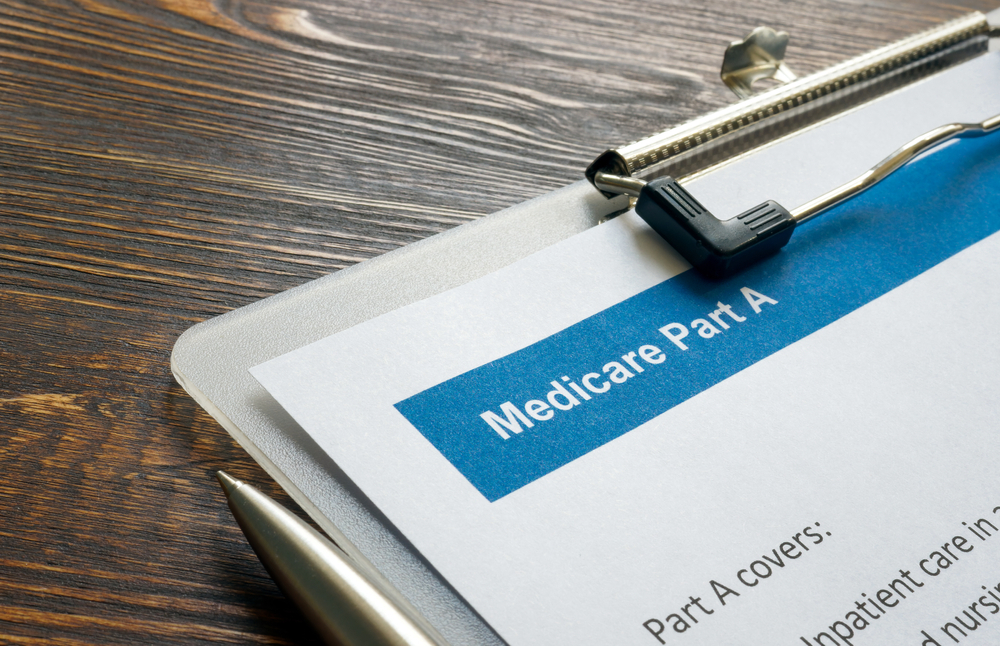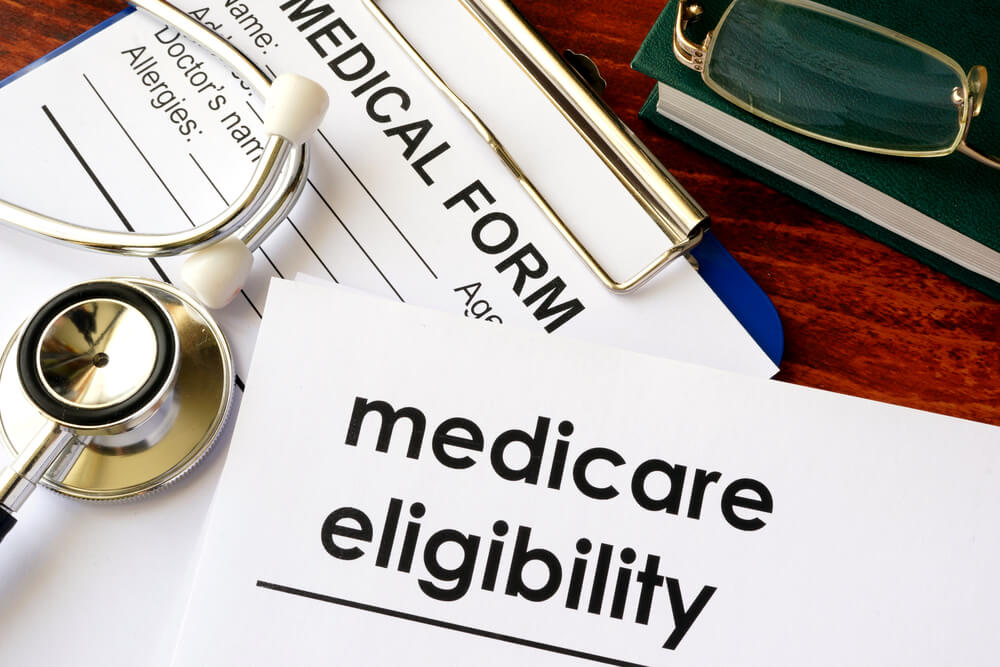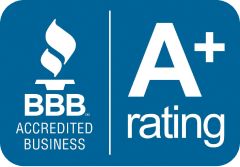Medicare Part A Eligibility: Are you a Medicare beneficiary? You’ve come to the right place if you’re unsure or want to discover how to enroll.
What You Should Know
When you reach the age of 65 and are a U.S. citizen or permanent resident, you are generally eligible for Medicare.
If you have a handicap or certain conditions, you may be eligible for Medicare before you turn 65.
The amount you pay for Medicare is determined by the amount of taxes you paid while working and your household income.
Find Medicare Plans in 3 Easy Steps
We can help find the right Medicare plans for you today

Who Qualifies for Medicare Benefits??
Myth
Medicare is available to everyone.
Truth
To qualify for Medicare benefits, you must meet specific criteria.
You must have been a US citizen or permanent resident for five years or more, and you must meet the age requirement. If you don’t fulfill the age criteria but have a disability or a significant medical condition like renal failure, you may still be eligible for benefits.
Are you thinking about enrolling in a Medicare plan?
Find low-cost health insurance quotes online.
Contact Us: +1 (973) 590-2695
When Is It Possible to Enroll in Medicare?
Myth
Medicare can be enrolled at any time.
Truth
When you turn 65 and enter your Initial Enrollment Period, you are generally eligible to enroll in Medicare.
The duration of your initial enrolment is seven months:
- It starts three months before your 65th birthday and finishes three months after your 65th birthday.
- If you reach 65 in September, for example, you can apply for Medicare from June until December.
What Happens When You're 65 Years Old?
You’ll be automatically enrolled in traditional Medicare, also known as Original Medicare if you already get payments from Social Security or the Railroad Retirement Board (RRB) (railroad retirement benefits)
- Part A is hospital insurance, and Part B is medical insurance. When you reach 65, your Medicare coverage normally begins on the first day of the month you turn 65. Three months before your 65th birthday, you should receive your Medicare card in the mail.
- You must sign up if you do not get Social Security or RRB benefits. Online, over the phone, or in person, you can enroll in Medicare through Social Security. Even if you aren’t ready to collect Social Security retirement benefits, you should enroll as soon as your Medicare eligibility period begins.
- When you reach the age of 65, you should enroll in Medicare Parts A and B if you don’t have any other health insurance. You may not have to enroll in Part B if you’re still working and have health insurance through your employer or union. Below, we go over how to postpone Part B enrollment.
Is It Possible to Enroll in Medicare Before Turning 65?
If you are under the age of 65, you may be eligible for Medicare.
- For at least 24 months, you’ve been receiving Social Security Disability Insurance (SSDI).
- Starting on the first day of your 25th disability month, you’ll be automatically enrolled in Medicare Parts A and B. Three months prior to this date, you should receive your Medicare card in the mail.
- You have Lou Gehrig’s disease, also known as Amyotrophic Lateral Sclerosis (ALS).
- In the month that your SSDI benefits begin, you’ll immediately receive Part A and Part B.
Note that if you live in Puerto Rico, Part B is not automatically applied. To enroll, you’ll need to contact Social Security.
- If you have persistent kidney failure, also known as an end-stage renal disease (ESRD)
- You must enroll in Medicare on your own. The first day of the fourth month of dialysis therapy, or the month you’re admitted to a Medicare-certified hospital for a kidney transplant, is when your coverage begins.
Some Words of Wisdom
When you reach the age of 65, you should enroll in Medicare Parts A and B if you don’t have any other health insurance.

If you meet the following criteria, you are eligible for Medicare Part A:
- Meet the qualifications for U.S. citizenship or permanent residency, and
- You’re 65 years old or older, or
- You’re under the age of 65 and you get
- Social Security disability benefits for at least 24 months, or
- If you have ALS (Lou Gehrig’s disease), you may be eligible for disability compensation.
- Dialysis or a kidney transplant are two options for treatment.
Eligibility for those under the age of 65
If any of the following apply, some persons may be eligible for Medicare Part A sooner:
Disability benefits: If a person has received SSA or RRB disability benefits for at least 24 months, they may be eligible for premium-free Medicare Part A coverage.
The types of disabilities that qualify for assistance vary, and they might include both physical and mental illnesses.
End-stage renal disease: People with end-stage renal illness who are on dialysis or who have had a kidney transplant may be eligible for premium-free Part A.
They will not normally be required to wait 24 months for coverage, as is the case with persons who meet other handicap criteria.
Amyotrophic lateral sclerosis (ALS): Those with ALS, often known as Lou Gehrig’s disease, are eligible for Medicare Part A. They frequently do not have to wait the whole 24 months to become eligible.
In most cases, when a person receives disability benefits from the SSA or RRB, they will automatically be enrolled in Medicare Part A.
If a person has a question about their Medicare Part A eligibility or other parts of Medicare, they should call the Social Security Administration at 1-800-772-1213. (TTY: 1-800-325-0778).
Special situations include:
You have health insurance through your employer and are still working — You can enroll in Part A and Part B at any time as long as you meet the following criteria:
- You have group health plan coverage.
- You or your spouse work for the company that offers your health insurance (or a family member if you’re handicapped).
After you or your spouse (or a family member if you’re disabled) stop working or lose group health plan coverage, you have another eight months to join up (whichever happens first).
Even if you choose COBRA or other non-Medicare coverage, your 8-month Special Enrollment Period begins when you stop working.
Part A spouse eligibility

If a person is 65 or older and their spouse has paid Medicare taxes for 40 quarters of employment, they may be eligible for Medicare Part A benefits. This would entitle them to a Part A plan with no premiums.
Unless they have a qualifying impairment, a person who is younger than their spouse and has not yet reached 65 years of age cannot apply for Medicare sooner solely on their spouse’s eligibility.
For example, if a person is 62 and their spouse is 65, they will not be eligible for Part A benefits until they are 65.
Why is it possible that a person may not be eligible for Medicare Part A?
To be eligible for Medicare Part A, a person must be 65 years old or older. They cannot receive Medicare Part A benefits until they reach this age unless they meet additional criteria, such as having a qualifying impairment.
Some people maybe 65 but ineligible for Medicare Part A’s premium-free coverage. A person who did not work for 40 quarters and did not pay Medicare taxes, for example, would not be eligible.
If a person has paid Medicare taxes for 30–39 quarters, they are eligible for a $259 monthly Medicare Part A premium. A $471 monthly premium may be required if a person has paid taxes for less than 30 quarters.
Medicare Part A is not a completely free insurance plan, even if it does not need a premium. Out-of-pocket expenses continue to apply.
Learn about the out-of-pocket costs associated with Medicare Part A.
What is Medicare Part A, and how does it work? When Will You Be Able to Enroll?
Part A of Medicare covers hospitalization. Inpatient hospital, hospice, and skilled nursing facility care are all covered. Home health care is also included in Part A.
You can enroll in Part A:
- If you are not automatically enrolled during your Initial Enrollment Period (IEP), or
- At any time after you become eligible. You won’t be penalized if you enroll after your IEP if you qualify for premium-free Part A.
Medicare Part A Payments
Myth
Part A of Medicare is free of charge.
Truth
If you’re 65 or older and have worked and paid Medicare taxes for 10 years or more, you’re eligible for Part A with no monthly costs (40 quarters). There are out-of-pocket fees such as coinsurance and deductibles even if you don’t pay the Part A payment.
If you’re under 65, you can earn premium-free Part A after 24 months of Social Security or Railroad Retirement Board disability benefits, or if you have ESRD and meet certain criteria.
If you don’t qualify for premium-free coverage, you can get Part A for $259 per month (in 2021) if you’ve paid Medicare taxes for the previous 30 to 39 quarters. If you paid Medicare taxes for less than 30 quarters, this sum might rise to $471 each month.
There will be a penalty if you do not qualify for premium-free Part A and do not apply when you turn 65. When you do enroll, the penalty may boost your premium by 10%.
Who Is Eligible for Medicare Part B?
Outpatient services, including doctor visits, lab work, and preventive care, are covered by Part B medical insurance, which is the second piece of Original Medicare.
The following are the requirements for enrolling in Medicare Part B.
- When you’re eligible for Part A and don’t have to pay a monthly premium, you’re also eligible for Part B.
- If you have to buy Part A, you can acquire Part B if:
- You’re an American citizen or a permanent resident who has lived in the nation for five years or more, and
- You’re 65 or older or under 65 and qualify for Medicare due to a disability, ESRD, or ALS.
Part B has the same enrollment time as Part A: either during your Initial Enrollment Period, when you initially qualify for Medicare, or during the General Enrollment Period, when you become eligible for Medicare (January 1 to March 31).
When you reach the age of 65, you must decide whether or not to keep Medicare Part B.
If you’re automatically enrolled in Original Medicare, you’ll have to pick whether or not you want to keep Part B, which comes with a monthly fee. In 2022, the regular Part B premium will be $170.10. Depending on your salary, this figure may be greater.
If you (or your spouse) are still working at 65 and have health insurance through a union plan or a job with 20 or more employees, deferring Part B enrollment may be the best option. Similar benefits to Part B may already be provided by your employer or union.
You’ll have a Special Enrollment Period to sign up for Part B while you’re still covered by your employer or union, or after it ends.
Penalty for Part B Late Enrollment
If you don’t enroll in Part B when you first become eligible and don’t qualify for special enrollment, you may face a penalty when you do. Your Part B premium will be raised by 10% indefinitely as a result of the penalty.
Who Is Eligible for Part C?
Let’s take a look at Medicare Part C, or Medicare Advantage, eligibility. If you have both Part A and Part B, you are qualified to enroll.* Health coverage is provided through Medicare-approved private insurance companies. Every plan has a “service area” that you must live in to get its benefits.
Are you thinking about enrolling in a Medicare plan?
Find low-cost health insurance quotes online.
Find low-cost health insurance quotes online.
Please call us at:+1 (973) 590-2695
*If you have ESRD, you are usually not eligible for Medicare Advantage (kidney failure). Some insurers, however, provide Special Needs Plans that cover ESRD. This will change in 2021 when enrollment restrictions for ESRD patients will be eliminated.
Part C Plans Are an Alternative to Original Medicare
Medicare Advantage plans include both Part A and Part B benefits. The majority of plans have built-in Part D prescription drug coverage. Other benefits, such as vision and dental coverage, are available in some cases. When you join Medicare Advantage, you must continue to pay your Part B premium.
You can only enroll in Medicare Advantage at certain periods. These are some of them:
- Your Initial Enrollment Period (IEP), begins three months before and ends three months after your 65th birthday.
- You can switch between Original Medicare and Medicare Advantage during the yearly Open Enrollment Period, which runs from October 15 to December 7.
- The Medicare Advantage Open Enrollment Period takes place every year from January 1 to March 31. If you already have a Medicare Advantage plan, you can change it (with or without prescription coverage) or cancel it and go back to your Original Medicare.
Find Medicare Plans in 3 Easy Steps
We can help find the right Medicare plans for you today
Who Is Qualified for Part D?
If you have Medicare Part A and/or Part B, you are eligible for Part D. This applies to individual Medicare Part D prescription drug plans (PDPs). If you’re getting medication coverage through Medicare Advantage, keep in mind that you’ll need both Parts A and B.
Myth
Most prescription drugs will be covered whether I am automatically enrolled in Original Medicare (Parts A and B) or if I sign up through Social Security.
Truth
The majority of drugs are not covered by original Medicare. Many consumers who want to stay on Original Medicare (rather than moving to Medicare Advantage) add a Part D plan to meet their prescription medication costs.
Private insurers also sell PDPs, and you must live in the plan’s service region to enroll. Not every medicine is covered by every plan. Verify that your meds are covered.
When you first become eligible for Medicare, or during the open enrollment, which runs from October 15 to December 7, you can enroll in a Part D plan.
What Happens If You Don't Enroll in Part D Until It's Too Late?
If you don’t sign up for Part D when you first become eligible and haven’t had alternative drug coverage for 63 days, Medicare may charge you a penalty when you sign up, which will be added to your monthly cost. Part D premiums differ depending on the plan.
If you’re worried about the expense of prescription coverage, Medicare includes a program called Extra Help for low-income folks. If you get Extra Help, you don’t have to worry about the Part D penalty.
Steps to Follow
You’ll be better prepared to get the most out of Medicare once you know what you’re eligible for and when to join.
The Centers for Medicare & Medicaid Services (CMS) oversees the Medicare program, with assistance from the Social Security Administration (SSA) and the Railroad Retirement Board (RRB). Medicare and Medicaid are two different programs. Medicaid is a health insurance program run jointly by the states and the federal government that is normally only offered to low-income people. You may be eligible for both Medicare and Medicaid.
Read More: Original Medicare, Part A, and Part B







